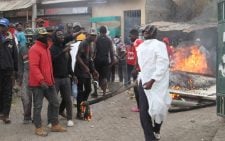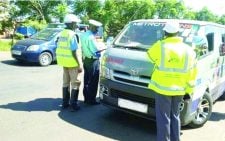Local climate action can power TVET innovation for resilience

The Financing Locally Led Climate Action (FLLoCA) is an initiative supported by the World Bank and other development partners, implemented by the government of Kenya through the National Treasury in collaboration with counties and civil society organisations.
The programme seeks to enable the development of low-carbon, climate-resilient communities in rural areas by devolving both climate funds and decision-making.
In last week’s column, I called for international climate change funding to inform social impact investment, particularly to support industrial attachment for TVET trainees.
The FLLoCA program can help fill part of this funding gap. This is a unique yet unconventional idea, but one that aligns with the systems thinking approach that is increasingly being recognised as the best pathway to solving today’s dynamic environmental, economic, and social challenges.
At the heart of the FLLoCA funding model is the emphasis on identifying and implementing local initiatives that enhance climate adaptation.
These initiatives are vetted by local climate change committees at the ward and village levels to ensure they align with community needs.
Since TVET institutions form part of the local community ecosystem and host a high concentration of youth – mostly drawn from the communities around them – their consciousness around climate-resilient projects should be awakened.
This will ensure that youths in TVETs initiate projects that can benefit from FLLoCA funding.
Given the introduction of Competency-Based Education and Training (CBET), which focuses more on the demonstration of practical skills, knowledge, and competence, there is a high demand for creativity and innovation.
This should lead to the development of climate change adaptation mechanisms that are both practical and fundable under FLLoCA.
The thinking behind this column was sparked during a recent meeting in Kisumu with civil society organisations working to enhance locally led climate change action in the Nyanza region.
As we explored partnership, collaboration, cooperation, and coordination for local climate change activities, I had the opportunity to nudge them to work with technical trainees to initiate projects with the potential for massive social, economic, and environmental impact – not only in the climate space but also in the areas of competence, knowledge, and skills development.
Expanding the horizon of thinking on climate action is a prerequisite for innovative development. As I have confided in this forum before, I believe that developing green skills and a renewed mindset among the youth is a clear pathway to sustainable development.
Let us take, for example, an income-generating activity such as fish rearing within TVET institutions, as agriculture students use this as a learning platform. With FLLoCA funding, such projects can be expanded to deliver greater value for the broader society.
The writer is a UN global food systems Youth Leader, a vocational and technical Trainer, and a communication Consultant.














